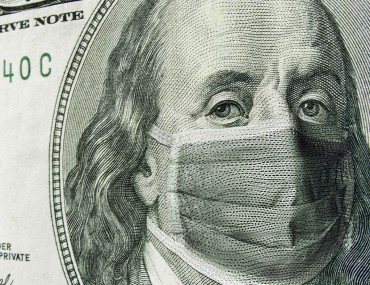
A Broader View of Chinese Medicine Applied to Health Care Reform.
By Brendan Kelly, acupuncturist, herbalist
For several thousand years, Chinese medicine has emphasized the importance of looking below the surface. In the treatment room, acupuncturists and herbalists are trying to understand where symptoms are coming from rather than only treating the symptoms themselves. The clinical importance of this holistic perspective is that when the root causes of a condition are addressed not only can a wide variety of symptoms be resolved, but there is a much greater possibility of understanding the origins of the condition. This broader view of Chinese medicine can be applied not only in the treatment room, but to the larger issues of health care reform.
In addition to it’s effectiveness in treating individuals, Chinese medicine’s emphasis on looking for where symptoms are coming from can also provide insights into the condition of our health care system. Here in New England and nationally, a significant issue is the already expensive and rapidly increasing costs of health care. Here in Vermont, where I live and practice, the state is predicting that if the cost increases continue at their current rates, it will literally bankrupt the state in twenty years. Other states around the region and around the country are facing similar dire predictions. A basic question is why?
In looking at where the vast majority of the money we spend on health care is going, we can begin to see some of the deeper assumptions that are helping to create this economic unsustainability. For most of us, we think about seeing our practitioner when we are sick. We might have sometime more superficial like a cold or flu, or something more significant like cancer, but the overwhelming amount of time and money we spend on healthcare is for when we aren’t well. Of course, whether we have a low-grade fever and a lingering cough, or a potentially life-threatening tumor, hopefully we can find a treatment or a practitioner that can be of help.
However, from the view of Chinese medicine, treating sickness is only part of an effective healthcare system. The historical analogy is that waiting until you are sick to receive treatments is like waiting for your well to run dry before starting to dig. If the well is dry or you’re sick, there is nothing wrong with buying bottled water or getting treatments. But just as it’s expensive to continuously buy jugs of water for drinking, cooking, washing dishes and showering, it’s also expensive to wait until we’re sick before we get treatments.
We see the same pattern in looking at the majority of the dollars that we, and government agencies and private insurance companies, pay to our health care practitioners. Most practitioners, whether they are an MD prescribing pharmaceuticals or an herbalist prescribing herbs, are paid when people are sick. In most cases, when people are well they don’t make an appointment and therefore the practitioner is not compensated. Following the influence of our healthcare dollars, we are helping to create a system where almost all practitioners only receive money when we are not well—rather than creating a system that cares for health, we are creating a system that maintains sickness.
We are getting what we are paying for with healthcare. Most of the dollars we spend go towards treating sickness, and many practitioners, organizations and companies are following these dollars. At our clinic, most people make an initial appointment because of some physical, mental or emotional symptom, but many stay after these symptoms are gone. In addition to treating sickness and preventing disease, Chinese medicine offers deep-reaching and person-specific treatments to promote long-lasting health.
What are you paying for?
copyright 2013, by Brendan Kelly




